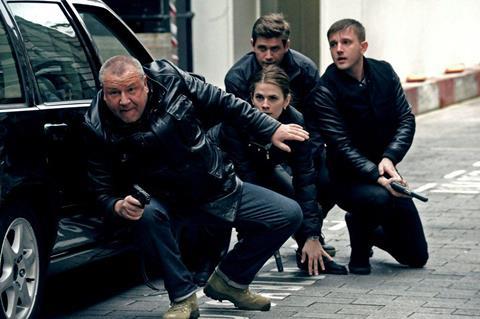Monsters producer Allan Niblo was among industry execs to discuss challenges facing the UK’s creative industries at the BSAC conference in London.

At the British Screen Advisory Council (BSAC) conference in London yesterday, a panel of industry experts were asked to outline the challenges facing the UK’s creative industries.
BSAC deputy chair and the session’s host Ajay Chowdhury kicked off proceedings by celebrating the “huge success” of the UK’s audiovisual industries, talking up the 250,000 jobs in the sector, which has grown at three times the rate of the UK’s overall economy.
Chowdhury then asked panelists Allan Niblo (Vertigo Films), William Sargent (Framestore), Martin Baker (Channel 4) and Noirin Carmody (Revolution Software) to raise what they believed to be the biggest challenges facing their companies.
Responding to a question about the current climate of the UK film industry, Vertigo Films co-founder Niblo, producer of the Monsters franchise and The Sweeney, said the “sheer number” of Hollywood productions on British shores was causing “tension” and the landscape for the indigenous British industry was “tough and challenging”.
“How many UK-owned companies could fully finance a film and distribute it? Not many. That’s a real challenge,” he added, drawing comparison with France where he said that many companies were able to do just that.
He added that “distribution is a key element” and that “more help was needed” to ensure British films get seen as “just getting out there is so expensive”.
He also raised concerns around the retention of talent, stating that holding onto key personnel was his company’s biggest challenge, alongside the retention and exploitation of copyright.
Niblo, whose celebrated company includes a distribution unit and post-production facility The Post Republic alongside its production operations, said that if US companies continue to lure key talent for high-budget blockbuster productions – citing Godzilla and the Planet Of The Apes franchise as examples – there would be a skills shortage in the UK.
“We need to be able to attract them [UK crew] to make product here that can compete globally,” he stated.
However, Niblo did talk up the industry’s continued innovations, saying that technological advancements were “very exciting”, in particular highlighting the potential of virtual reality.
Education
The panelists also raised the topic of building skills through education, and whether this was at risk in the long-term.
Framestore CEO Sargent said the schooling period “was critical” and that early education was “more important for us [Framestore] than university when you’re looking for the origins of people’s brains”.
He added they can “hire people on the spot” when they identify a strong mix of art and science achievement in a candidate’s school background.
Noirin Carmody said that to sustain the creative industries there was a “diverse skill-set requirement” and that more subjects needed to be added to the curriculum as the current range “is so narrow”.
Responding to this, Chowdhury quizzed the panelists on whether in five years’ time there could be a shortage of skills in the UK, which drew agreement across the board.
Niblo stated there is “definitely” the potential for a skills gap to emerge.
He added it was essential students received encouragement to think entrepreneurially to ensure that the UK continues to innovate in its creative industries, highlighting the work of the National Film and Television School, of which Niblo is an alumni.






![The Brightest SunScreen[Courtesy HKIFF]](https://d1nslcd7m2225b.cloudfront.net/Pictures/274x183/3/5/0/1448350_thebrightestsunscreencourtesyhkiff_312678.jpg)


















No comments yet